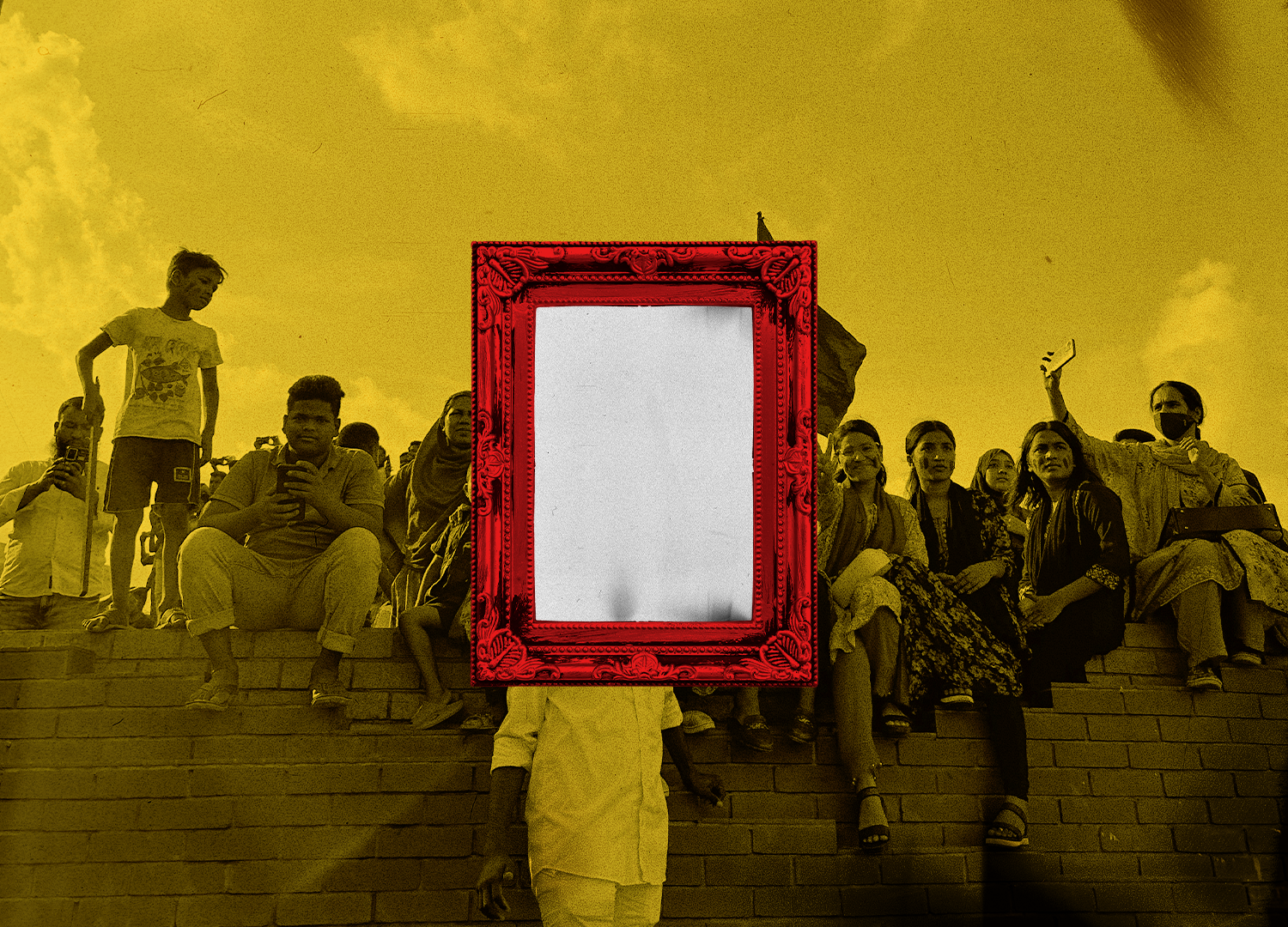Has anyone in charge got a plan?
With zero visibility ahead, people need answers. Quick.

Portraits are being smashed. Whose photo will soon adorn walls in government offices? The light now shines fully on the Army Chief. He has some questions to answer.
- How did the big plunderers get to fly safely to Dubai? I am referring to ex-ministers. One can understand the security rationale for the sisters and avoiding August 1975, but why the cabinet?
- Why was he insisting that students return home? After 300 dead and thousands injured, why disempower them when they are most needed?
- Did the several delays to his national announcement suggest a sense of unreadiness and lack of resolve, or something else?
- Why does he feel the Armed Forces need to remain outside barracks? They don’t seem to have done much to quell violence yesterday or today, nor preemptively protect minorities. Are there not other sufficient security agencies, allied with student people power, to stamp out provocative attacks by desperados of the ancien regime or old-style opposition hard cases?
- Appointed by the fugitive Prime Minister, what can he do to reassure the people that he is the right person to be at the helm?
- Who decides the composition of an interim cabinet? How are shortlists created, by what criteria, and by whom?
- Will all political prisoners be released immediately?
- Does he or his subordinates have an economic roadmap? Officers these days are educated and trained about statecraft, so which way are they inclined?
Forget about returning to 1990 nor 2007
Since the students died in triple figures, some by army rifles, at the very least, their representatives should be seated at the cabinet table. Why are there rumours of discredited "shushil samaj" personages being lobbied for? Has anyone wondered whether worker leaders should be there too?
There should be no lengthy timetable of promised handovers or an end to the transition, certainly not for two long years. That would mean a 2007 2.0 regime all over again. No one today of influence seems to have a plan for industrialisation, East Asian style. Remember, the original catalyst for the rebellion was a lack of jobs. That must remain central to the discourse. Retreating into the comfort zone of outsourcing economic policy and handing financial sovereignty to the IMF and World Bank is asking for trouble.
Egypt offers a cautionary tale. Tahrir Square thought they were the vanguard, but they didn’t have a plan. They were used and then shunted aside. A dozen years later, it continues as an economic basket case run by a pro-Western general who ‘wins’ elections where 90 per cent of phantom voters plump for him. Or so he says.
This is no longer 1990 when there was time. Repairing civil society and discussing good governance at a relaxed pace is a luxury that a much larger, connected, politicised populace cannot afford. They demand economic emancipation, jobs, affordable basics, and personal security. Now. This means immediately learning lessons from East and Southeast Asia and joining them. I notice next to no debate, curiosity, or awareness about this. How on earth do you think a new export manufacturing sector, matching garments, is supposed to emerge? How will we approach the largest economic power, China?
Oh, and amid a reset with Delhi, does Dhaka immediately demand a reduction in payments to Adani? Along with a forwarding address for the absconding Energy Minister already sipping champagne to drown his sorrows.
If the composition of the interim government includes those from the mid-2000s, with a Western economic and geopolitical orientation, then down the road there will be a greater, immensely destructive earthquake. The people yearn for a genuine democracy, not merely electoralism. If that does not come about, then we will wonder if we get a General Musharraf from Rawalpindi or a General Park from Seoul.
The game has only just started.●
Farid Erkizia Bakht is a writer and analyst.